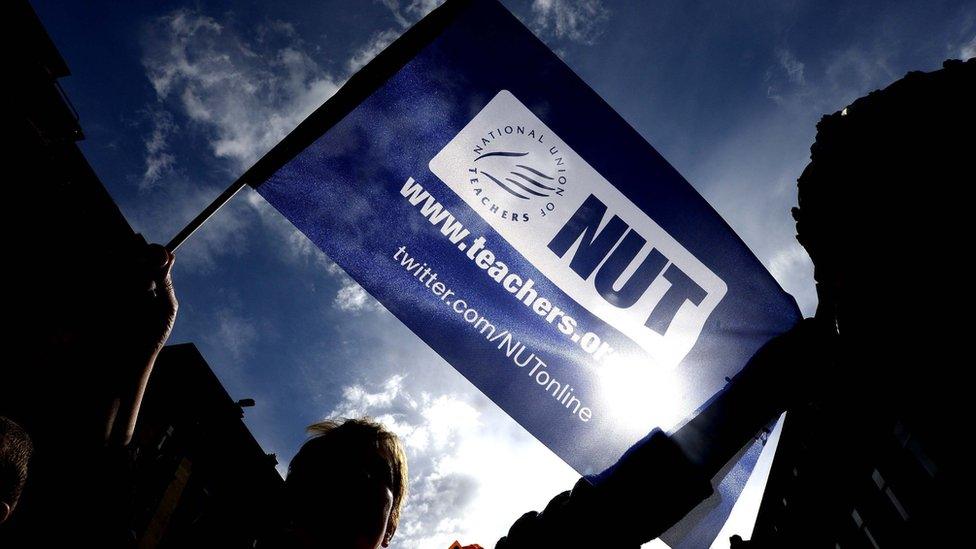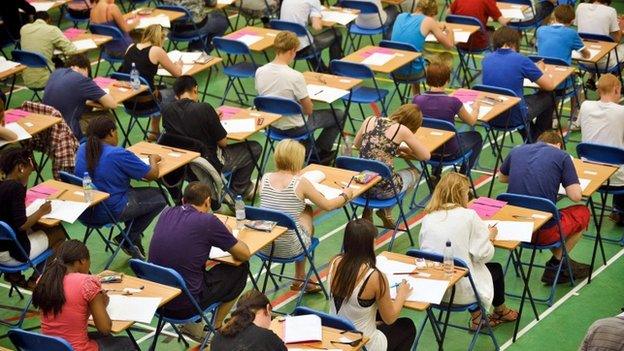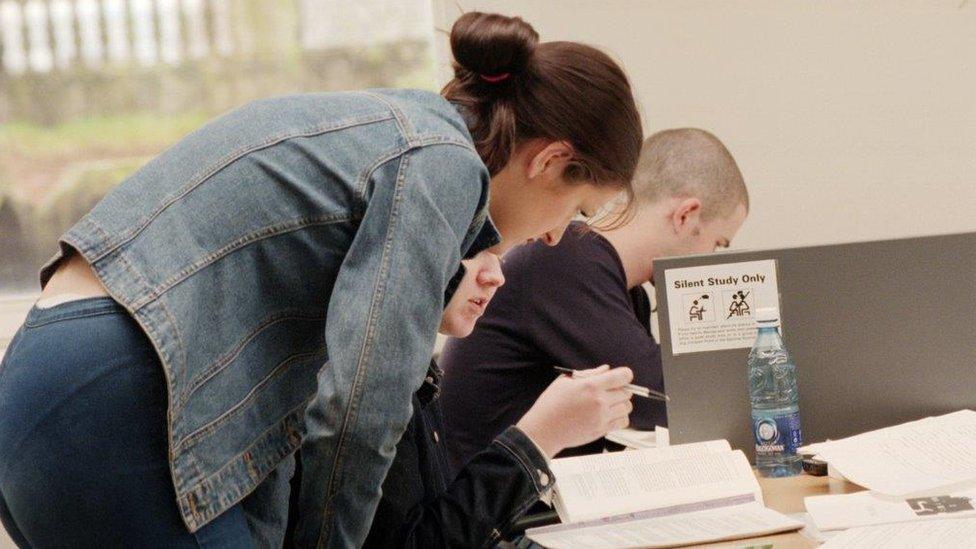Sixth-form college teachers' strike can go ahead, says High Court
- Published

Sixth-form colleges say cuts have hit them harder than other educational institutions
Tuesday's strike by teachers at sixth-form colleges in England can go ahead, the High Court has said.
Mr Justice Kerr has rejected a government bid to stop the planned strike on the grounds the action would be unlawful.
The government had argued this was not a trade dispute as defined by the law.
But the judge refused to grant the Secretary of State for Education an urgent declaration that the strike, over funding cuts, was illegal.
In last month's ballot, 86% of National of Union of Teachers members in England's 93 sixth form colleges voted in favour of strike action on a 44% turnout.
Members were asked: "In order to persuade the Secretary of State for Education to increase presently inadequate funding levels which cause detrimental changes to terms and conditions within the sixth-form college sector, are you prepared to take a day's strike action?"
In the vote, 1,453 were for the strike and 235 against, with one spoiled paper.
The union said the strike action would be going ahead as planned following the ruling.
'Common sense'
NUT deputy General Secretary Kevin Courtney called the judge's decision "a victory for democracy and common sense".
Clive Sheldon, QC for the Secretary of State, had told the court the action was unlawful because it was not predominantly about terms and conditions of employment.
Mr Sheldon argued that there was no current dispute between the NUT and the colleges, because a pay claim had been settled in February.
He said the dispute was instead about funding cuts and part of the union's political campaign "Save Our Colleges".
Mr Justice Kerr's decision, after a day of argument, was against granting the declaration.
He said the likely outcome of any trial of the issue was that the NUT's strategy was to protect members' terms and conditions through its campaign.
Mr Courtney said: "It is abundantly clear that government cuts to sixth form college funding are having a direct impact on our members' terms and conditions and as such we are entitled to take strike action.
"Sixth form colleges provide a vital service to over 150,000 young people, many from disadvantaged backgrounds. Yet government funding cuts mean many of those services will soon be financially unviable. The cuts will result in a further loss of courses, job losses and increased class sizes."
Disruption
A Department for Education spokesman said the government was disappointed with the court's decision and was considering its options.
"The NUT is seeking to disrupt the education of thousands of students and damage the reputation of the profession," said the spokesman.
Recent changes had seen core 16 to 19 funding protected while the unfair difference between school sixth forms and colleges had been ended, he added.

Sixth-form colleges have long complained about poor funding
James Kewin, deputy chief executive of the Sixth Form Colleges Association, told the BBC he did not expect any colleges to be shut because of the strike but there would be varying degrees of disruption according to levels of NUT membership in each establishment.
Mr Kewin agreed sixth form colleges were underfunded but he said the NUT action was counter-productive.
"We agree with their ends but not their means," said Mr Kewin.
"It is not good for students and they are the people who we should be thinking of."
- Published14 March 2016

- Published25 November 2015

- Published10 November 2015
